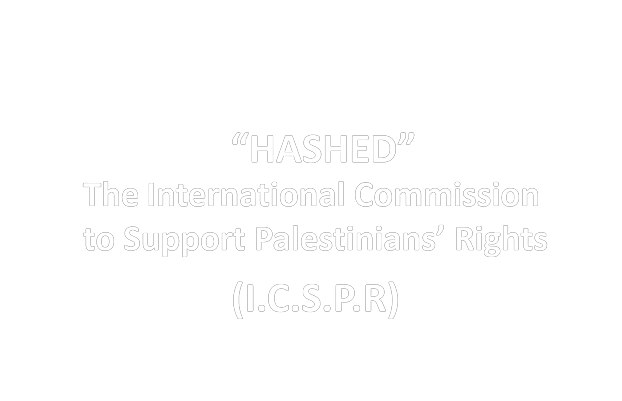Date: December 23, 2023
Time: 13:00 local time
Press Release
129 human rights organizations, including The International Commission “Hashd”, strongly condemn the United States’ use of the veto to prevent the issuance of a resolution in the United Nations Security Council to halt the aggression against the Gaza Strip
The undersigned human rights organizations deplore the persistence of the United States of America in providing cover for the continuation of the occupying and apartheid state in committing various crimes through its abuse of the right of veto.
The United States, as a permanent member of the National Assembly, voted against a draft resolution calling for an immediate ceasefire in the Gaza Strip, on December 8th, 2023. Although permanent member states are entitled, under Article 27 of the United Nations Charter, to use the right of veto in non-procedural matters, the United States’ resort to using the right of veto against the aforementioned draft resolution should not be viewed from a purely formal standpoint, but rather should be dealt with. On the basis of an objective and contextual legal approach, which means that the United States’ use of the veto to prevent the cessation of the aggression of the occupying and apartheid entity against the Gaza Strip is legally flawed and illegitimate for many reasons, most notably:
- The United States’ use of the veto contravenes the requirements of Article 24 of the United Nations Charter, especially since it would lead to the Security Council voting on its basic responsibility of maintaining international peace and security in accordance with Article (24/1) of the Charter. Therefore, it is permissible for us to affirm that the best interpretation of the provisions of the Charter in light of the text of the aforementioned article is based on the fact that the use of the veto is restricted where it has a negative impact on international peace and security. It is self-evident that the United States’ use of the veto contributes to the continued disruption of international peace and security in the region through the occupation entity’s continued commission of various crimes against the Gaza Strip. This was confirmed by the Secretary-General of the United Nations when exercising his powers stipulated in Article 99 of the Charter.
- The provisions of the United Nations Charter can also be interpreted as prohibiting the abuse of the veto, especially since Article (24/2) of the Charter assumes that the Security Council carries out its responsibilities in accordance with the purposes and principles of the United Nations. Among those purposes are the maintenance of international peace and security, respect for humanity and the right of peoples to self-determination. The United States itself has previously commented on Russia’s use of the veto on more than one occasion as an abuse of this right.
- Among the basic principles of the United Nations is that Member States must implement the obligations arising from the Charter in good faith. It is also a general principle of international law, and permanent members of the Security Council must take it into account against the use of the veto. In fact, the United States did not abide by its requirements and did not respect it in the context of its use of its veto power to prevent the issuance of a decision to stop the immediate aggression against the Gaza Strip, especially since its intention behind it is clear. It facilitates and enables the Zionist entity to continue committing its international crimes, including the genocide of Palestinians in the Gaza Strip.
- The United States of America’s use of the veto contravenes the peremptory rules of international law, which condemn crimes of genocide, war crimes, crimes of aggression, and crimes against humanity, and call for the protection of human rights and fundamental freedoms.
- The United States’ use of the veto conflicts with the provision contained in Article (41/1) of the Articles on the Responsibility of States for Illegal Actions adopted by the United Nations in 2001, as the aforementioned article requires States to cooperate to put an end to and end any serious violation of a peremptory norm from the rules of international law through legal methods. In addition, the American veto also conflicts with Article (41/2) of the Articles on State Responsibility, which requires states not to recognize the legality of any situation resulting from a serious violation of a peremptory norm, and not to provide any aid or assistance to perpetuate or maintain it. It also led to the Security Council abstaining, and as a result, the United Nations, from carrying out its duties to stop the genocide committed by the Zionist entity in the Gaza Strip, which constitutes an illegal act in accordance with the Articles of International Responsibility of International Organizations adopted by the United Nations in 2011.
Based on the above, we condemn the United States of America’s abuse of international law and its exploitation of the United Nations to cover up the genocidal crimes committed by the Israeli occupation in the Gaza Strip, and we call for the exploitation of the action adopted by the United Nations General Assembly in 2022 under Recommendation No. 76/262; Which allows the General Assembly to convene automatically ten days after the veto is used, to discuss this, comment on it, and find out its reasons, and to discuss the United States’ involvement in the genocide crimes committed in the Gaza Strip, and that its use of the veto falls within this context.
Signatories (in alphabetical order):











